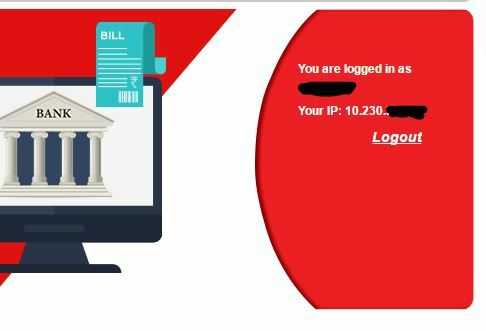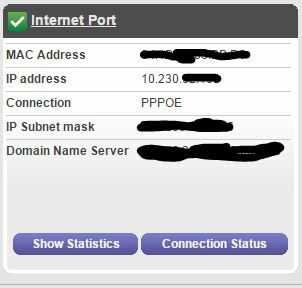19
4
I understand 192.168.x.x is our local IP address, and the public IP is some other. I used this site to get my IP, and the result: 
But in my official ISP's site and my Router's login, it is as follows:

My router and ISP shows my an IP, while the website shows me another IP. What is my actual IP address? And why am I assigned multiple IP addresses?
I am asking so that another computer can establish a connection with my computer, as I wrote a java program for that
24
Your ISP is likely using Carrier Grade NAT.
– DavidPostill – 2016-08-13T15:11:04.4773@DavidPostill as someone who uses the same ISP as OP, can confirm – Sathyajith Bhat – 2016-08-13T15:11:28.817
So what is likely to be my actual IP? (I am asking so that another computer can establish a connection with my computer, as I wrote a java program for that). – Siddharth Venu – 2016-08-13T15:12:23.603
@Sathya Nice to know I'm right again :) – DavidPostill – 2016-08-13T15:12:48.630
@SiddharthVenu Please read Alternatives to Port Forwarding & NAT: "There are four major problems that you may run into that would require alternatives to port forwarding. " ...
– DavidPostill – 2016-08-13T15:13:13.397@DavidPostill so I cant use that 49.xx.xx.xx as there are many ISP customers sharing the same IP. So could I use the 10.230.x.x? But it will just be the address my ISP has which is not visible outside right? – Siddharth Venu – 2016-08-13T15:17:03.610
4
Yes, that's carrier grade NAT... done wrong. The shared IP address should be in 100.64.0.0/10, and IPv6 should have been deployed before CGNAT. My site http://myip.addr.space/ can tell you if you have IPv6 connectivity.
– Michael Hampton – 2016-08-13T18:32:20.560There is a protocol called STUN that can be used to connect two computers both behind NAT, using a service outside the NAT. – pjc50 – 2016-08-13T21:36:41.667
4"What is my actual IP address?" Private IP addresses are actual IP addresses. The only difference between private and public IP addresses is that the ISP have agreed to not route traffic with private IP addresses. Other than that, private and public IP addresses are exactly the same, and they work the same way. You happen to have private addresses on both your WAN and LAN. The ISP has the public IP address which is used to reach you on the public Internet; you don't have a public IP address. – Ron Maupin – 2016-08-14T03:24:59.107
1@SiddharthVenu: They're all your actual IP ;) – Lightness Races with Monica – 2016-08-14T14:12:02.080
@RonMaupin: "the ISP have agreed to not route traffic with private IP addresses" .... and so has your router manufacturer. – Lightness Races with Monica – 2016-08-14T20:51:19.160
@LightnessRacesinOrbit, not at all. Where did you get such a crazy idea. Routers don't care if the addresses are private or public. I could set up my router to have private addresses on all the interfaces, and it will happily route between the private networks. CGN, which the carriers are now rolling out to residential customers, wouldn't work unless routers could route between private addresses. – Ron Maupin – 2016-08-14T21:44:59.217
@MichaelHampton All the major US ISPs that are doing CGN are using 10.x addresses. While the spec sets aside the block you listed for CGN, there's no requirement to use it. It may be a bad idea for them because they will cause routing trouble for any customer that had chosen the same block as they did, but they're doing it anyway. – Moshe Katz – 2016-08-15T17:47:43.533
@MosheKatz All the major US ISPs, eh? I see proper RFC6598 addresses on Comcast. – Michael Hampton – 2016-08-15T17:52:03.283
@MichaelHampton That must either be a recent change or depend on what part of the country you are in, because I've gotten 10.x from Comcast in the past. I haven't checked recently on Comcast. I can tell you that as of today, both AT&T (wired and wireless) and T-Mobile are using 10.x addresses – Moshe Katz – 2016-08-15T17:57:20.473
@MosheKatz I'm not too surprised that some providers have done that. But saying that they all do, doesn't seem accurate. – Michael Hampton – 2016-08-15T17:58:31.677
I can't edit it anymore, so pretend it now says "As of when I last checked, all major ...". – Moshe Katz – 2016-08-15T17:59:43.130